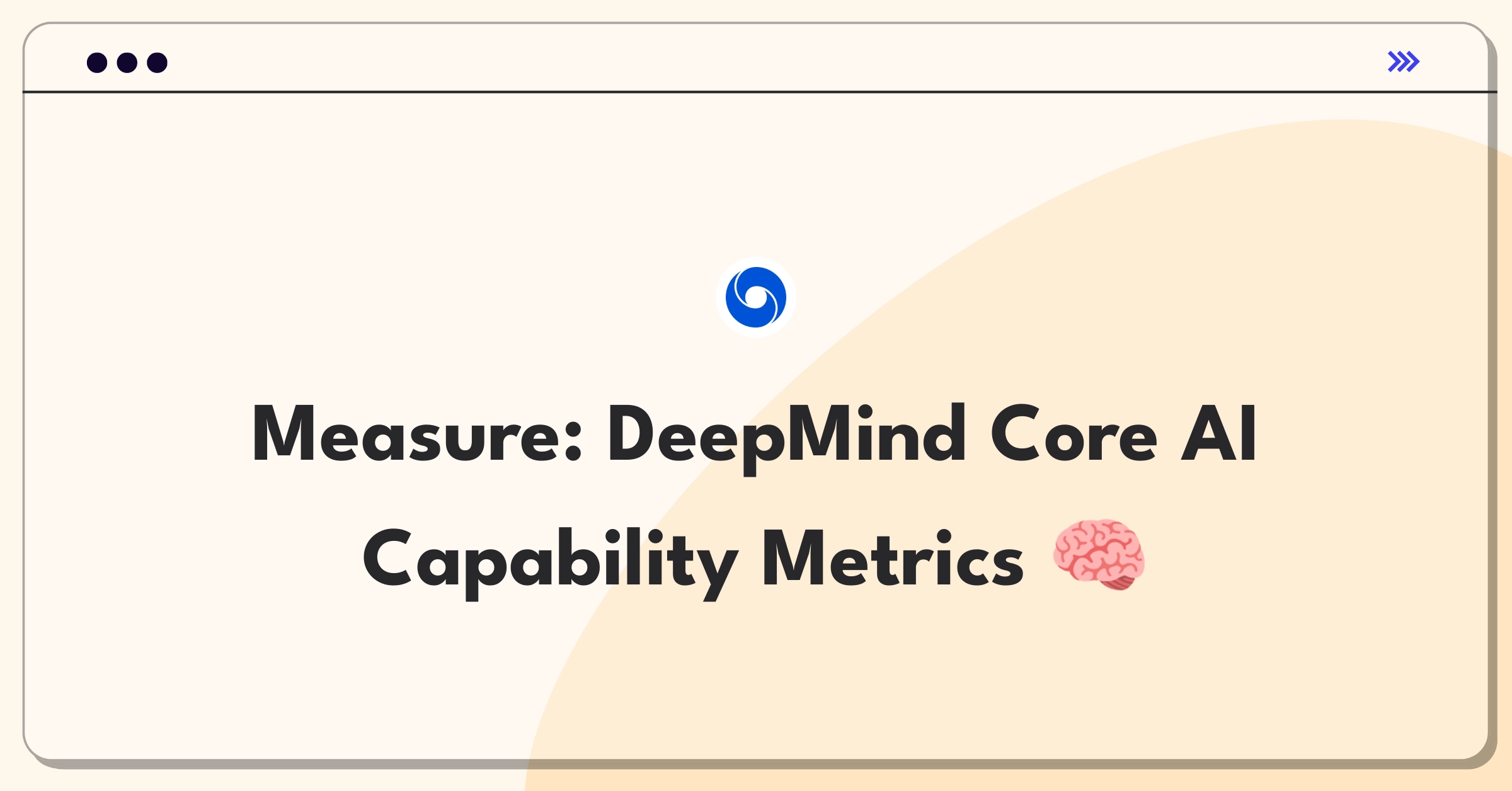Introduction
Measuring the success of DeepMind's core feature requires a comprehensive approach that considers both the technical achievements and real-world impact of their artificial intelligence systems. To address this complex product success metrics problem, I'll follow a structured framework covering core metrics, supporting indicators, and risk factors while considering all key stakeholders.
Framework Overview
I'll follow a simple success metrics framework covering product context, success metrics hierarchy, and strategic implications.
Step 1
Product Context
DeepMind Core is the foundational AI system developed by DeepMind, a subsidiary of Alphabet Inc. It encompasses a range of machine learning algorithms and neural network architectures designed to solve complex problems and advance artificial general intelligence (AGI).
Key stakeholders include:
- Researchers: Motivated by pushing the boundaries of AI capabilities
- Alphabet/Google: Interested in commercial applications and competitive advantage
- Partner organizations: Seeking AI solutions for specific domains (e.g., healthcare, climate science)
- The broader scientific community: Looking for breakthroughs in AI that can benefit humanity
User flow typically involves:
- Problem definition: Researchers or partners identify a complex challenge
- Data preparation: Relevant datasets are collected and preprocessed
- Model training: DeepMind Core algorithms are applied to learn from the data
- Testing and refinement: Results are evaluated and models are iteratively improved
- Deployment: Successful models are implemented in real-world applications
DeepMind Core fits into Alphabet's broader strategy of maintaining leadership in AI technology, which can be applied across various Google products and services, as well as in solving global challenges.
Compared to competitors like OpenAI and IBM Watson, DeepMind Core is known for its focus on developing more general-purpose AI systems capable of transfer learning and multi-task performance.
In terms of product lifecycle, DeepMind Core is in a mature stage for some applications (e.g., game-playing AI) but still in development for more advanced AGI capabilities.
Software-specific context:
- Platform/tech stack: Utilizes custom-built hardware (TPUs) and software frameworks
- Integration points: APIs for researchers and potential commercial applications
- Deployment model: Primarily cloud-based, with some on-premise options for sensitive applications
Subscribe to access the full answer
Monthly Plan
The perfect plan for PMs who are in the final leg of their interview preparation
$99 /month
- Access to 8,000+ PM Questions
- 10 AI resume reviews credits
- Access to company guides
- Basic email support
- Access to community Q&A
Yearly Plan
The ultimate plan for aspiring PMs, SPMs and those preparing for big-tech
$99 $33 /month
- Everything in monthly plan
- Priority queue for AI resume review
- Monthly/Weekly newsletters
- Access to premium features
- Priority response to requested question


.png)